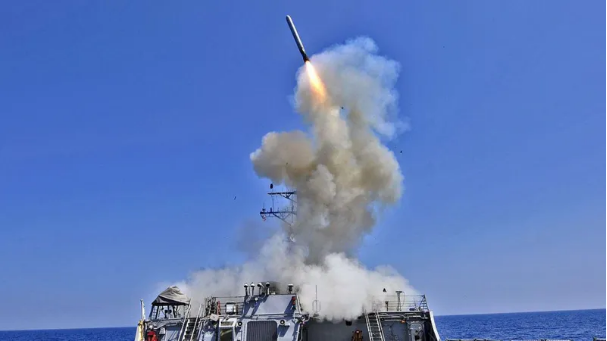
US Plans Deployment of Long-Range Missiles in Germany, Heightening Tensions with Moscow
Fiona Nanna, ForeMedia News
5 minutes read. Updated 2:13PM GMT Thurs, 11 July, 2024
The United States and Germany have jointly announced plans to deploy long-range missiles in Germany starting from 2026. This decision, unveiled during NATO’s 75th anniversary summit in Berlin, includes the deployment of Tomahawk cruise missiles, SM-6 missiles, and hypersonic missiles, each boasting extended operational ranges compared to existing missile systems.
The deployment of such weaponry, once prohibited under the 1988 INF Treaty between the US and the Soviet Union, has reignited geopolitical tensions exacerbated by the treaty’s collapse five years ago. Russian Deputy Foreign Minister Sergei Ryabkov swiftly denounced the move, labeling it as a provocative escalation and warning of retaliatory measures.
According to a joint statement by US and German officials, the deployment will initially be episodic but is intended to transition to a permanent presence. This initiative underscores the US commitment to NATO and Europe’s integrated defense strategy against perceived threats.
German Defense Minister Boris Pistorius, addressing concerns at the NATO summit in Berlin, clarified that the temporary presence of US missiles aims to bridge Europe’s growing capability gap in defense readiness. He emphasized that this strategic move intends to prompt European nations, including Germany, to invest in developing their own long-range missile capabilities.
The INF Treaty, which once prohibited ground-launched missiles with ranges between 500-5,500 km (310-3,400 miles), was dissolved amid accusations of violations by both the US and Russia. Following the treaty’s termination in 2019, the US accused Russia of deploying prohibited nuclear-capable cruise missiles.
In Germany, reactions have been mixed, with members of Chancellor Olaf Scholz’s coalition, particularly from the Greens party, criticizing the decision to host US missiles on German soil. Security spokesperson Sara Nanni expressed concerns over potential misinformation and heightened public anxiety resulting from the decision, urging clarity and transparency from the government.
This deployment of US missiles in Germany marks a pivotal moment in European security dynamics, with implications for regional stability and global security strategies. As tensions mount between NATO allies and Russia, the ramifications of this decision are likely to reverberate across international relations, shaping future defense policies and geopolitical alignments.

